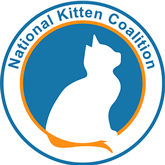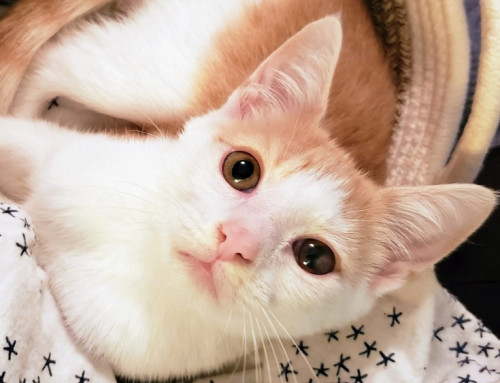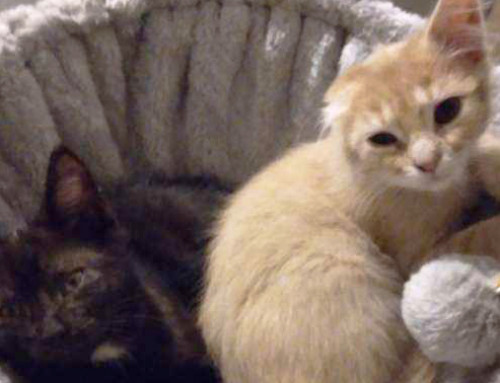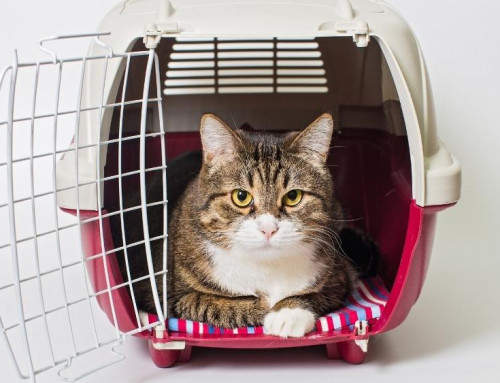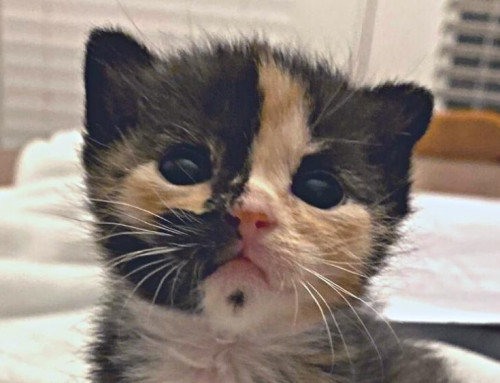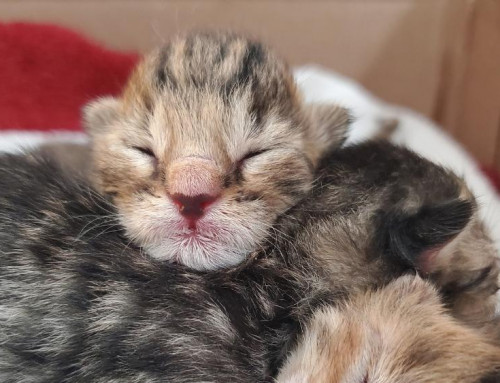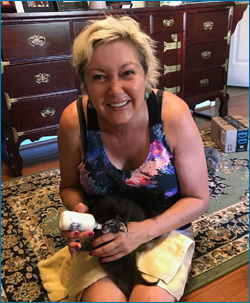
I grew up with all kinds of animals and because I cared so much for them, I wanted to become a veterinarian. I went to college for veterinary undergraduate work with financial assistance from the Army, so immediately went into military service. What I thought would be the four-year minimum in the Army, turned into 27 years. During my travels from base to base, I often had animals in my life.
I was medically retired from the Army after 27 years. I hadn’t wanted to leave, but I was broken physically and mentally. I had injuries that I needed treatment for and PTSD from combat. I had lost my purpose in life and was giving up on life in general.
When someone suggested I volunteer at an animal shelter, I started fostering kittens with the Animal Welfare League of Arlington (AWLA) in Arlington, Virginia. I discovered that neonatal kittens were usually euthanized because shelters didn’t have the resources to care for them; I fostered as many as I could, so that they would have a chance at life. I suddenly had a purpose in life and a reason to keep going. The kittens saved me.
When I became a bottle baby foster in 2016, neonatal programs didn’t really exist. I took in about 20 kittens that first year, and my work with kittens grew from there. AWLA now has hundreds of fosters as well as a Kitten College, and I am proud to have been a part of its program from the start.
In the beginning, my biggest concern was getting too attached to kittens and having my heart broken when I lost one. What I have since learned is that it can indeed be heartbreaking. But, the overall joy and feeling of accomplishment when I save kittens has been too rewarding to dwell on the negative.
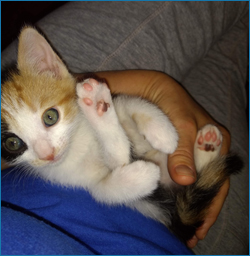
Along the way, I have relied on great resources from The National Kitten Coalition (The NKC). Marnie Russ was very helpful in getting me past the hardest times. I was lucky to have Marnie and Vanessa (AWLA), both outstanding teachers and mentors for me.
I’ve attended NKC webinars and training sessions and keep The NKC posters in my home nursery and print them for new fosters. I’ve learned a lot from The NKC about the operation of a neonatal program in general, including how to get one up and running.
I’ve also worked with numerous new fosters, and I direct them to The NKC website for many resources; almost anything they need to learn can be found there. I encourage new fosters to attend training at local shelters and recommend they join their local shelter’s social media site as a source of information, with the caveat that sometimes even shelters can post misinformation by mistake. That’s why The NKC’s researched resources are so important.
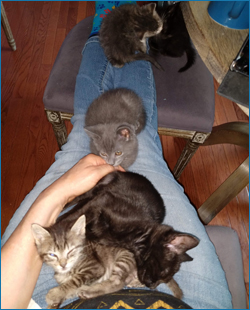 On a micro level, I learned quite a bit about growth stages of kittens and warning signs of poor development. I still use an electric hand warming device in my nursery per The NKC’s co-founder Susan Spaulding’s suggestion! As a result of following The NKC, I have also thought a lot about how much more we can do to help kittens in shelters.
On a micro level, I learned quite a bit about growth stages of kittens and warning signs of poor development. I still use an electric hand warming device in my nursery per The NKC’s co-founder Susan Spaulding’s suggestion! As a result of following The NKC, I have also thought a lot about how much more we can do to help kittens in shelters.
I would like to see organizations, such as The NKC, explore a partnership between shelters and the Department of Defense; in particular, organizations that deal primarily with Veterans. These men and women need a purpose, a reason to get up in the morning. We all know the psychological and physical benefits of having animals in our lives, and fostering kittens could be the reason for these wonderful men and women to start their day with a meaningful purpose.
A pilot program could start with Walter Reed National Military Medical Center which cares for injured service members. Like the existing programs between shelters and prisons to foster kittens, I believe having our nation’s Veterans foster kittens is an untapped resource with huge benefits for Veterans, the kittens and shelters.
I’ve thought a lot about the service men and women I met at Walter Reed getting medical treatment for their war injuries. Most of them were young people who had no skills outside of the military and were apprehensive about going back into the civilian sector. Some of them were never going to be able to go back to work. What they all had in common was that they didn’t want to be in the hospital any longer than necessary.
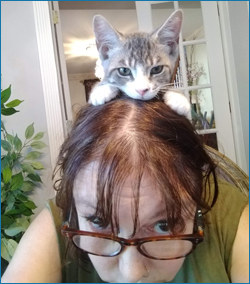
They passed time in treatment and classes as well as local group-sponsored outings, which were designed to enrich their lives and give them motivation and confidence to try new activities and do new things. Kitten fostering was not one of these things, but it really could have been! Allowing some Veterans to foster kittens in their living spaces would have been as beneficial to them as to the kittens.
People thank me for helping kittens; but the truth is they are helping me. I hope you enjoyed my story and, if you’re struggling, feel encouraged to foster kittens. It’s a win-win situation like no other!
